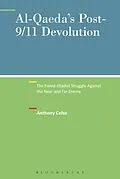This examination of al-Qaeda's decline since the 9/11 attacks focuses on the terror organization's mutation and fragmentation. It looks at its partnership with the local and regional jihadist networks that played a pivotal role in the Madrid, London, and Fort Hood attacks, arguing that, although initially successful, such alliances actually unraveled following both anti-terror policies and a growing rejection of violent jihadism in the Muslim world. Challenging conventional theories about al-Qaeda and homegrown terrorism, the book claims that jihadist attacks are now organized by overlapping international and regional networks that have become frustrated in their inability to enforce regime change and their ideological goals. The discussion spans the war on terror, analyzing major post 9/11 attacks, the failed jihadist struggle in Iraq, al-Qaeda's affiliates, and the organization's future prospects after the death of Osama Bin Laden and the Arab Spring. This assessment of the future of the jihadist struggle against Muslim governments and homegrown Islamic terrorism in the West will be an invaluable resource to anyone studying terrorism and Islamic extremism.
Autorentext
Dr. Anthony Celso is an Associate Professor with Department for Security Studies at Angelo State University. Earning his doctorate from Ohio State in 1989, he has over twenty years of teaching experience. Dr. Celso is an international recognized scholar who has participated in and presented lectures at German and Danish Universities. He is the author of 13 peer reviewed publications and a Washington Times editorial. Dr. Celso is a specialist in Islamic terrorism, Mediterranean and Middle East Politics and has taught at Angelo State since 2011. In addition to his book on Al Qaeda for Bloomsbury, he is finishing his an edited volume for Marine Corps University entitled African Security Problems in the 21st Century: The Failed State Revisited to be published in the Winter of 2013.
Inhalt
Introduction: Al-Qaeda's Post 9-11 Devolution and its Diffuse Network of Associates, Affiliates, Insurgents and "Homegrown" Terrorists
Chapter One: Al-Qaeda's Jihadist World View
Chapter Two: Al-Qaeda's Formation and its Far Enemy Strategy
Chapter Three: Al-Qaeda's Post 9-11 Strategy and Organizational Devolution
Chapter Four: Al-Qaeda's Role in the Madrid and London Bombings
Chapter Five: Zarqawi: Al-Qaeda's Tragic Anti-Hero and the Destructive Role of the Iraqi Jihad
Chapter Six: Al-Qaeda's Affiliated and Insurgent Groups in Somalia, Yemen and the Maghreb
Chapter Seven: West Africa: The Latest Jihadist War
Chapter Eight: The Role of Al-Qaeda Affiliated and Homegrown Terrorists in Post 9-11 Plots and Attacks against the United States
Chapter Nine: An End to Al-Qaeda? : Bin Laden's Death and the Arab Spring
Bibliography
Index
